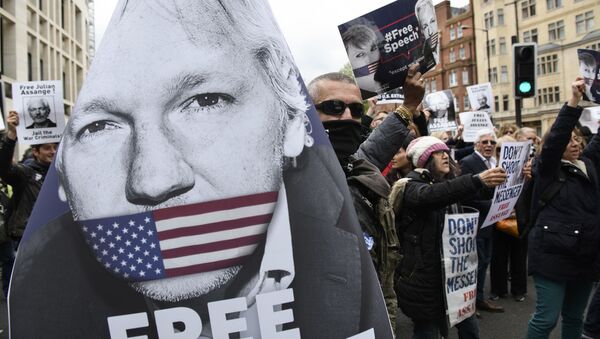The UN Special Rapporteur on Torture Nils Melzer wrote a letter regarding the extradition of Julian Assange on 28 July, warning that Assange could “be exposed to a real risk of torture or other cruel, inhuman or degrading treatment or punishment” if he ultimately finds himself in US jail.
Melzer also said that a "full consideration of the serious deterioration of Mr. Assange’s physical and psychological health resulting from the combination of factors" should be made.
He went on to say that the "environment of public vilification, arbitrariness and judicial bias" could affect Assange's vulnerable psychological state.
Melzer also described Assange's prison conditions as contributing to a depreciation of his physical health.
The report says: "From a strictly physical point of view, several aspects of Mr. Assange’s health condition and cognitive and sensory capacity have been, and still are, significantly impaired as a direct consequence of his long-term confinement in the Ecuadorian Embassy, without access to natural sunlight and adequate medical and dental care."
The letter described Assange as inhabiting a 2-meter cell with “a bed, a cupboard, a note-board, basic sanitary installations, a plastic chair and a medium sized window.”
He said that Assange's condition is preventing him from adequately preparing for any legal fights and an extradition to the US would damage his psychological state.
Melzer had previously visited Assange in Belmarsh prison in May, where he is facing 17 espionage charges.
The UN official affirmed that the US, British, Swedish, and Ecuadorian governments were responsible for the 'psychological torture' of Julian Assange.
In fact he also blamed all four governments for intentional generating an environment of “unrestrained public mobbing, intimidation and defamation,” including a “rape suspect narrative” to “deliberately undermine his reputation and credibility” by the Swedish government along with excessive restrictions by the Ecuadorian embassy.
Melzer published a series of his letters and official responses on Twitter from the US and Swedish governments.
In one letter, Melzer pleads with the UK government, asking them not to extradite Assange on the basis that the US could subject him to torture or unusual punishment.
While there has been no official response from Britain, the Swedish government responded by saying that the government cannot comment on the ongoing investigation, but that it "strongly refutes" accusations that "Swedish public authorities had any other grounds for their actions other then to investigate a criminal case."
— Nils Melzer (@NilsMelzer) July 28, 2019
The US government also rejected accusations of mistreatment, claiming:
“The United States takes its obligations under international human rights law very seriously,” and that “Individuals extradited to the United States are afforded due process under US law and fair trial guarantees.”
— Nils Melzer (@NilsMelzer) July 28, 2019
The response from the US also went on to say that it upholds its "firm commitment" to freedom of the media and press "consistent with the US constitution" and international law.


